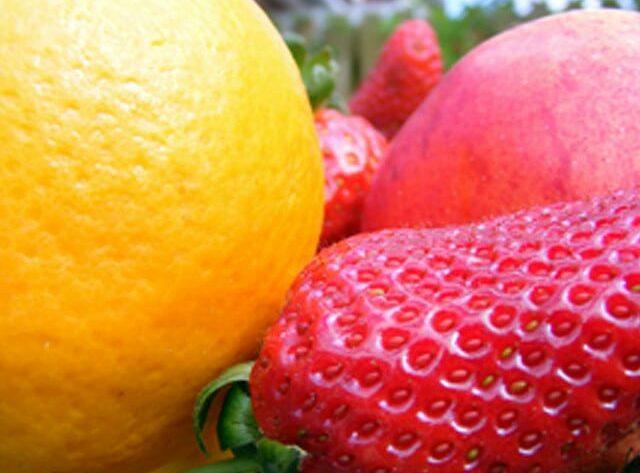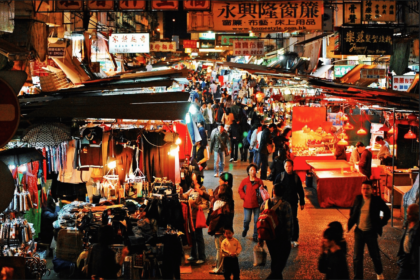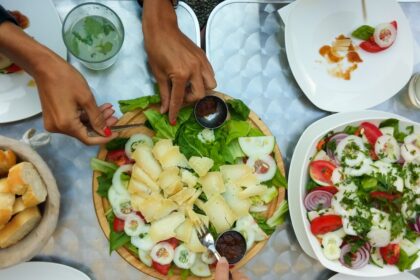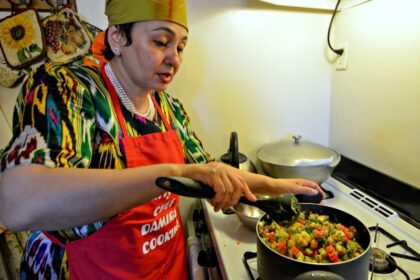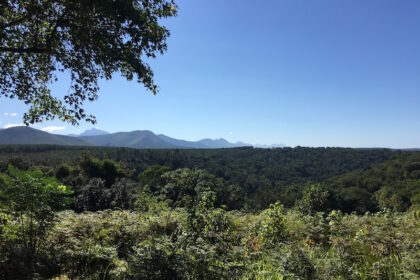
“The mission is to raise the energy of our community one body at a time,” says Char. “We are stronger working together than we are working individually.”
I’m inside Vibe, a personal vibrancy lifestyle management business speaking with the owner, Charlene SanJenko, or Char as the locals call her. From what I’ve been told, she’s a pillar of the Sunshine Coast community, empowering small businesses, facilitating networking and encouraging people to buy local.
In her newest venture, Sleek and Sexy, she’s even helping people lose weight. After exploring the Sunshine Coast, where everyone knows each other’s name and nobody wears just one hat, she’s iconic of the region’s philosophy.
The Sunshine Coast is a laid-back region of British Columbia’s southern mainland that takes on a very tight-knit community feel. Vintage boutiques, organic cafes, local galleries, quiet beaches and nature trails make up the coast, which is home to about 50,000 people.
Char pulls out a bag of “Sweet Cheeks,” a local brand of nutritious chocolates containing ingredients like pulverized coconut, walnuts and coffee beans.
“Have you been to visit Amber yet?” Char asks.
Amber Stoby is a local businesswoman who owns La Petite Souris Chocolate. She is the creator of the “Sweet Cheeks” line, as well as a range of other chocolates made from organic fruits and nuts locally sourced from B.C.’s organic farmers. Although Amber is a small woman, she has a big passion for chocolate.
“In France, Le Petite Souris is a fantasy character akin to the tooth fairy,” explains Amber. “It’s about a loss of a piece of childhood, and I want people to experience the playfulness they may have lost along the way again through chocolate.”
My group is taken to what was once master bedroom of her home, which is now a production space. A mixing machine buzzes as it temps the chocolate, and Amber uncovers a bowl of homemade caramel. We’re making caramels, and she shows the group how to fill the molds, scrape the leftover chocolate off off the top and dump out the center.
After 15 minutes of drying, we take the molds and fill them with the homemade caramel using a piping bag. Once they’re hard, another layer of chocolate gets poured on top to finish the treat. Biting into it, I vow never to waste calories on store bought caramels again.
From there, we learn how to make her specialty, a “Scarlet Bar” made with 64% bittersweet chocolate and aromatic dried raspberries bursting with a complex sweet-tart flavor.
“These are my most popular bar,” Amber explains. “I get the dried raspberries from Green Room Organics.”

[pullquote]People here are super self sufficient. They shop locally, support local business and grow their own food.[/pullquote]
Of course, this is another example of how everyone works together on the Sunshine Coast. Linda Fogerty and her husband, Gabriel, own the farm, which is certified organic. They grow a variety of produce like tomatoes, Squash, potatoes, spinach and beans.
Often, they’ll sell their goods at local farmers markets, as well as their gate in the yard. They’re in an area known as the “farm belt” on Henry Road and Russell Road, where local farmers work hard to feed and educate the community.
“People here are super self-sufficient,” explains Linda. “They shop locally, support local business and grow their own food.”
The farmers also work together, selling each others’ produce, hosting workshops and putting on programs like “Sunshine Seedlings” that help growers start from scratch.
I learn just how successful the program is after visiting Arcturus Retreat Bed and Breakfast. For about $150 per night, visitors can enjoy private balconies, mountain views and gourmet food. Owned by Celia Robben, her goal is to make guests feel at home while also serving locally-sourced and organically-grown cuisine. In fact, one of their go-to producers is Green Room Organics.
“I buy their peppers, and my tomato plants, zucchini seeds and lettuce heads come from their “Sunshine Seedlings” business,” says Linda, before adding, “In the spring, they grow the best spinach.”

During breakfast, we’re served a variety of delicious fare: blackberry muffins with real blackberries, quinoa and zucchini cakes, Greek yogurt made with fresh berries and Holy Crap cereal, fresh fruit smoothies, locally-sourced bacon and Holy Crap pancakes topped with fruit jams from the hotel’s garden.
As you can guess, Holy Crap is a local business, and the biggest success story on the Sunshine Coast.
Once called Hapi Foods, this artisanal cereal company owned by Corin and Brian Mullins was selling only 10 bags per week at the local farmers markets. It wasn’t until a customer said “Holy Crap! This is good!” that their destiny changed, as did the name of the product.
Suddenly, demand was booming. In fact, they were asked to be on the CBC television program “The Dragon’s Den,” which features entrepreneurs pitching their start-ups in the hopes of securing funding from venture capitalists, known as the dragons.
When one of the dragons wanted to take the business off the Sunshine Coast, the couple refused, saying they wanted to keep it in the community that has supported them from the beginning.
Holy Crap is more than just cereal, it’s a resource for the community in terms of health and food insurance. After being stuck in the North American Ice Storm of 1998 and unable to get food, the couple realized they had to create a resource that was not only healthy, but also a survival kit. Made with chia and locally-sourced dried fruit, Hemp hearts and buckwheat, the cereal is certified organic, gluten-free and vegan.
While other similar products contain sugar and salt additives as well as genetically modified and non-organic ingredients, Holy Crap doesn’t. Moreover, the product doesn’t ever go bad.
“At any given time, you’re three days away from your last meal,” explains Brian. “If there was a disaster, we have enough product here at the plant to feed every person on the Sunshine Coast for a week.”
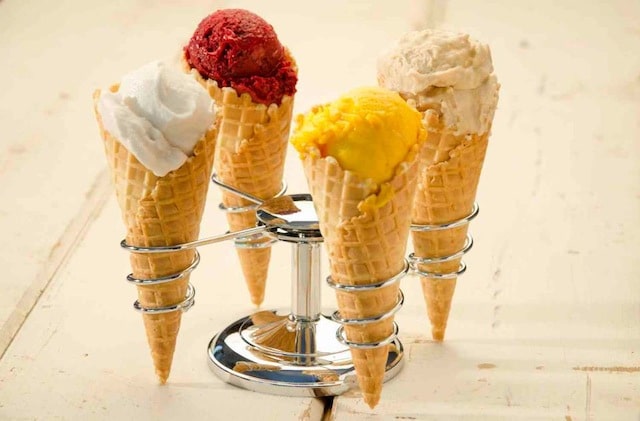
I ponder this my last night of the trip at the Painted Boat Resort. Sitting in their restaurant eating handmade organic sorbet from Batchworks topped with raspberries from Henry Reed’s farm and sipping a locally-sourced Twentyman’s Tea, I realize what a beautiful community this is. Never before have I seen such a passion for working with your neighbors to produce and higher-quality, sustainable way of life.
For me, the destination wasn’t just a worthwhile vacation, but also an important life lesson.
Bonus tip:
When traveling around British Columbia, also consider visiting Victoria BC, the capital of the province.
Featured image via antibarbie
Jessica Festa
Latest posts by Jessica Festa (see all)
- A Culturally-Immersive Adventure In Mongolia’s Altai Mountains - Jul 8, 2023
- This Recipe Sharing Platform Supports Women In The Culinary Industry (Labneh Recipe Included!) - Nov 5, 2020
- Hiking The Mohare Danda Community Eco-Trek In Nepal - Jun 3, 2020
- 6 Important Questions For Choosing A Responsible Yoga Retreat - May 18, 2020
- How To Create & Grow A Profitable Blogging Business (Ethically) - Jan 18, 2020

